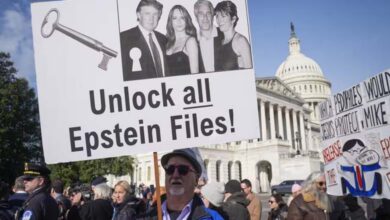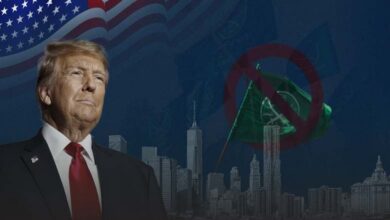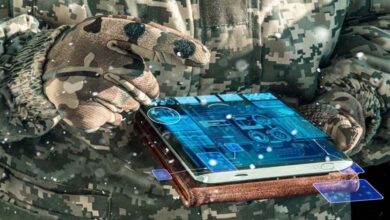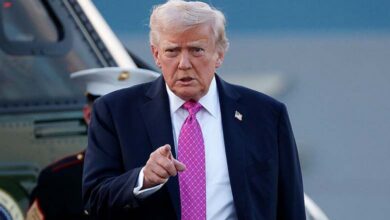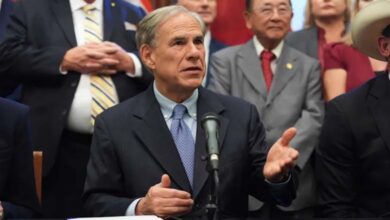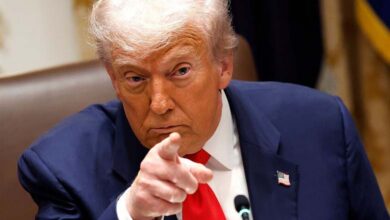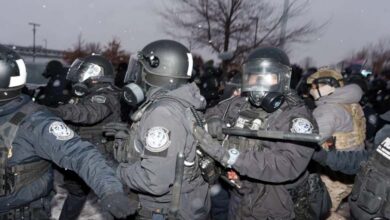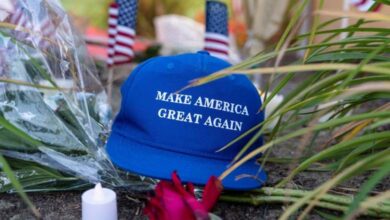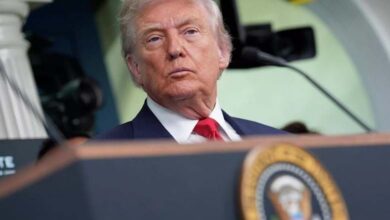Due to the 2021 Scenario: A “Special Badge” for the National Guard at Trump’s Inauguration
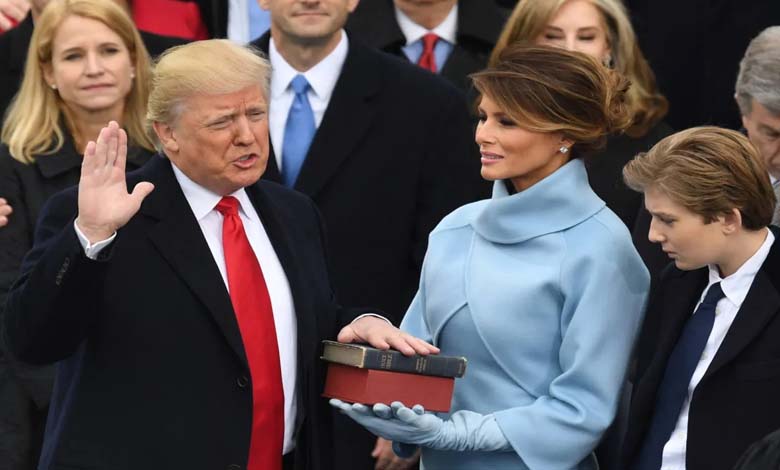
During the racial protests and the January 6, 2021 events, the uniforms of the U.S. National Guard made it difficult to distinguish between police officers and military personnel.
-
The Pentagon is “powerless” against mysterious drones… Unchecked intrusions over a U.S. base
-
The Capitol Case: Trump’s Fate if He Was Not Elected President
This year’s inauguration, however, will be different. National Guard leaders have approved a special shoulder badge featuring the National Guard motto “Always Ready, Always There” to ensure attendees can distinguish National Guard troops from police officers during the inauguration of President-elect Donald Trump.
General Liliand Blanchard, commanding general of the National Guard in Washington, D.C., stated, “This badge aims to make it easier to identify National Guard participants.” He explained that the badge “will be worn by National Guard members on duty to highlight their role and the importance of their participation in this peaceful transition.”
-
Betting on a “Breath of Life”… U.S. Officials Warn of ISIS’s Return in Syria
-
Why does Trump want to annex Greenland? The full story
The badge, which features red, white, and blue colors, also includes the figure of the “minuteman,” an old symbol of the National Guard dating back to the War of Independence, providing a visual means to identify soldiers.
Officials believe the U.S. government is better prepared this year to handle any unforeseen incidents. However, they also believe the transfer of power will be less violent and threatening than in 2021, when around 25,000 National Guard soldiers were deployed to the capital after the Capitol siege.
-
Armed groups target U.S. Bases despite Biden’s warnings
-
The Telegraph: Trump’s Ban on the Muslim Brotherhood Is a Once-in-a-Generation Opportunity
Approximately 7,800 National Guard soldiers from over 40 U.S. states and territories will participate in securing the event and have already begun arriving in Washington.
Blanchard noted that one change this year is that soldiers will arrive one or two days before the inauguration “to ensure communication lines are established and to avoid a large influx of people in a short period.”
Trump‘s inauguration ceremony and the march inside buildings, due to cold weather, may lead to adjustments in soldier placements, but no significant changes are planned. Soldiers will continue securing the area around the Capitol.
-
Muslim Brotherhood: Scaling Back Activities with Trump’s Arrival to Avoid Terrorist Label
-
U.S. signals to keep Quds Force and remove Guard from terrorism list
Citywide, a wide range of federal, legal, and military officials have convened to plan and conduct simulation exercises for months.
Blanchard stated that the goal is to ensure all agencies can communicate clearly and continuously throughout the event.
Many drills and discussions focused on ensuring everyone understands their specific roles and responsibilities, with quick and clear communication in case of unexpected events.
-
Trump’s Rise Prompts Iran to Consider the Consequences of a Potential Attack on Israel
-
Afghanistan’s Taliban Government Hopes for a “New Chapter in Relations” After Trump’s Win
National Guard soldiers will handle crowds, traffic control, and site security. Specialized teams will be ready to respond to chemical, biological, or explosive incidents. They will also help secure 100 traffic control points and five metro stations.
Intelligence agencies are closely monitoring threats. So far, officials have not identified any major risks and expect this inauguration to resemble many pre-2021 ceremonies.
In January 2021, the country was in the midst of the Covid-19 pandemic, streets were empty, participants wore masks, and hotels and restaurants offered simplified accommodations and meals for National Guard soldiers and police officers.
-
The Potential Return of Trump to Power: A Nightmare for Iran
-
“Enemy Within”: Trump’s Generals Turn Against Him
This time, hotels and restaurants will be crowded. National Guard officials have identified other ways to house, feed, and care for soldiers securing the city, including using several downtown buildings, which will largely be vacant as federal employees work remotely in the coming days.
Approximately 87% of National Guard soldiers are from the Army and 13% from the Air Force.


